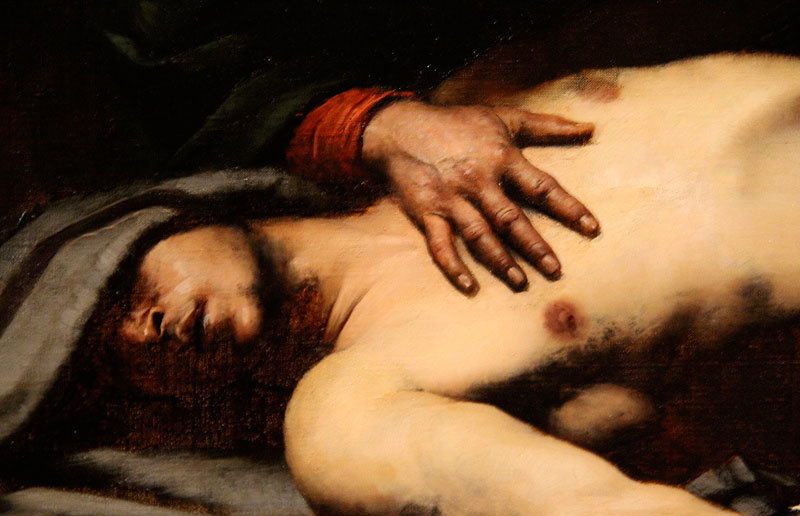
One day an expert in religious law … wanted to justify his actions, so he asked Jesus, “And who is my neighbor?”
Jesus replied with a story: “A Jewish man was traveling from Jerusalem down to Jericho, and he was attacked by bandits. They stripped him of his clothes, beat him up, and left him half dead beside the road. [A priest and a Temple assistant crossed the road to avoid the man.] Then a despised Samaritan came along, and when he saw the man, he felt compassion for him….“Now which of these three would you say was a neighbor to the man who was attacked by bandits?” Jesus asked. The man replied, “The one who showed him mercy.” (Luke 10:25-37)
We often read this famous story as a call for religious people not to be so self-important that they refuse to help those in need, even when it’s inconvenient.
But that’s only one way to read about the good Samaritan.
* * * *
Our expert in the law understands the use of stories in making a theological point, so as he’s listening, he’s figuring out:
- Who is the hero of this story?
- Who am I in this story?
Although Jesus’s first two examples (the priest and the temple assistant who pass by the man in the ditch) are the ones most culturally allied to our expert, they are definitely not the heroes. The hero is clearly the Samaritan — the despised one, the one our legal expert crosses to the other side of the road to avoid even being near. This might make our expert uncomfortable enough.
But “Who is my neighbor?” is the question that started the story.
“Who is the neighbor to the man attacked by bandits?”
“The one who showed him mercy.”
Which makes the answer to the original question: “Your neighbor is the Samaritan.”
Our expert is the man in the ditch, broken, bruised, in need of help. He is not the hero, but the one who needs saving. That is probably not who he was expecting to be.
That’s not who many of us expect to be in the story, either. But what if we are?
What if you are the one who is hurt and broken and needy?
Then your neighbor is the one you think is gross, the one you think you are morally superior to, the one who is the butt of your jokes. That neighbor is the one who will help you, the who will show you mercy and make it possible for you to receive the healing you need.
Which makes the story of The Good Samaritan a whole lot more uncomfortable to live out — but then, Jesus doesn’t tell these stories to help us justify our actions. He tells them to challenge our self-justifications.
Photo credit: Renaud Camus / Foter / CC BY[/fusion_builder_column][/fusion_builder_row][/fusion_builder_container]



